Werther
Jules Massenet
Musical drama in four acts (five scenes)
Libretto: Édouard Blau, Paul Millet, and Georges Hartmann after Johann Wolfgang Goethe
World premiere: 16 February 1892, Paris
Premiere of this production: 14 January 1995, Amsterdam
In the original French with Polish and English surtitles
Werther by Jules Massenet comes from the catalogue of Wise Music Group
‘Without the idea of suicide I would have surely killed myself,’ goes the famous quote from Emil Cioran, an expert in mental pain who invested all his creative energies into bemoaning the human condition. (He left behind thousands of published pages filled with moans and complaints whose main purpose – as he also famously admitted – was to delay his suicide.) Opera classics abound in fatalities, with scores of rejected or betrayed lovers taking their own life in despair, yet the victims are predominantly women. Not in Massenet’s opera. Based on the famed epistolary novel by the young Goethe, this story’s suicidal protagonist is a young man, the most renowned romantic lover of them all, who shoots himself unable to cope with Weltschmerz and obsessive love for the wrong person. The opera is, in fact, his poignant suicide note, while the suicide itself is sometimes delayed by the dazzled audience. Singing the title role in the premiere of Willy Decker’s production of Werther, Piotr Beczała was forced to sing an encore of Ossian’s Song (‘Pourquoi me reveiller’) before he could shoot himself. Indeed, this is one of the most celebrated tenor arias of all time and reason enough to suffer a little together with Werther.
-
Time is measured by
-

Cast
Credits
Orchestra of the Polish National Opera
Władysław Skoraczewski Artos Children’s Choir
Sponsors
-
Partnerzy Akademii Operowej
-
Partnerzy Akademii Operowej
-
Patroni medialni
-
Patron medialny premiery
-
Partners of the Opera Academy
-
Partners of Teatr Wielki – Polish National Opera
-
Media patrons
-
Media patron of the premiere






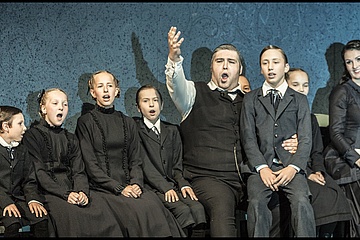
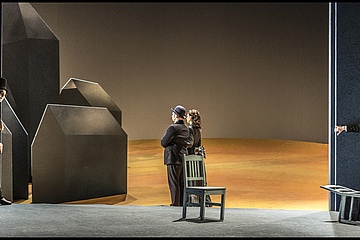
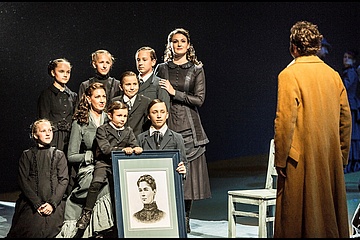
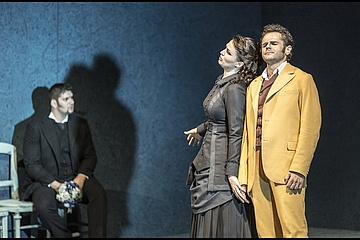
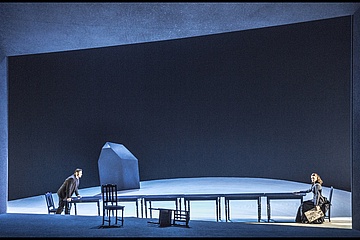
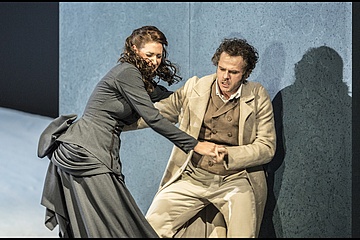
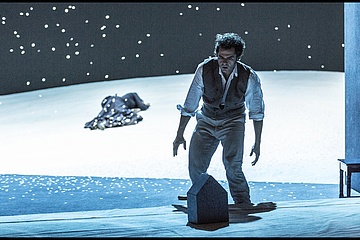
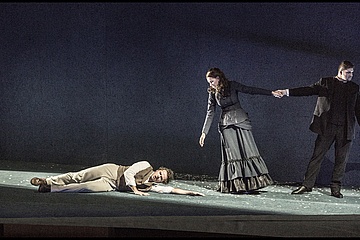
 Iryna Zhytynska
Iryna Zhytynska  Peter Berger
Peter Berger  Stanislav Kuflyuk
Stanislav Kuflyuk ![[Translate to English:]](/fileadmin/_processed_/3/5/csm_Sylwia_Olszynska_2024_-_kwadrat_28cfd0f16e.jpg) Sylwia Olszyńska
Sylwia Olszyńska  Jasin Rammal-Rykała
Jasin Rammal-Rykała  Jacek Ornafa
Jacek Ornafa  Jerzy Butryn
Jerzy Butryn ![[Translate to English:]](/fileadmin/media/img/ludzie/dyrygenci/patrick_fournilier_fot_arch_artysty_-_kwadrat.jpg) Patrick Fournillier
Patrick Fournillier  Willy Decker
Willy Decker  Wolfgang Gussmann
Wolfgang Gussmann  Stefan Heinrichs
Stefan Heinrichs 



